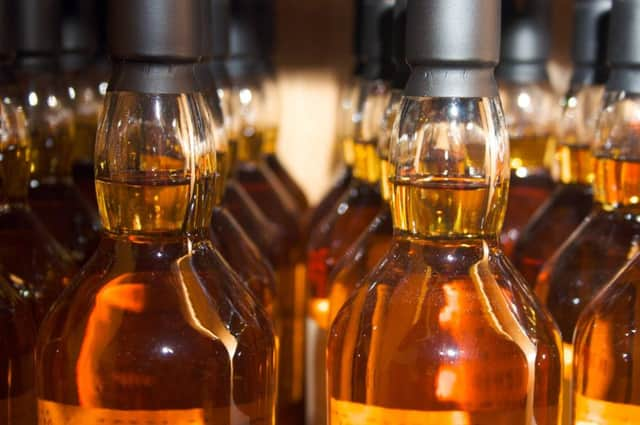Whisky industry sets ambitious new green energy targets


The Scotch Whisky Association said it had refreshed its Scotch Whisky Industry Environmental Strategy - first published in 2009 - and would look for manufacturers of the spirit to use energy sources such as anaerobic digestion and solar power.
The new interim target of 40 per cent comes in addition to the long-term aim of reducing non-fossil fuel energy use to 80 per cent by 2050. Currently, 17 per cent of energy used in the whisky industry is generated from non-fossil fuels - up from just three per cent in 2008.
Advertisement
Hide AdAdvertisement
Hide AdOther guidelines include improving distilling water efficiency by 10 per cent and ensuring that no general waste from Scotch Whisky operations will go to landfill - both by 2020.
Scotch whisky accounts for around a quarter of UK food and drink exports, generating £3.95 billion for the UK balance of trade.
Julie Hesketh-Laird, Scotch Whisky Association deputy chief executive, said: “The refresh of the Scotch Whisky Industry Environmental Strategy is a clear sign of bold industry intentions on sustainability. Sound environmental management is an industry priority and goes hand in hand with business growth. Our strategy is collective, building on the work of individual Scotch Whisky producers. And strong support from governments and our supply chains will be needed to help deliver on our ambitions.
“The strategy remains the only one in Scotland covering an entire industry. It sets out challenging voluntary goals that will protect the natural environment for generations to come.”
A total of 115 distilleries are licensed to produce Scotch Whisky.
Environment Secretary Roseanna Cunningham said: “The whisky sector has already made a significant contribution to increasing sustainability and I very much welcome this commitment to further progress. Making good whisky relies on quality ingredients and these in turn depend on our environment. It is heartening to see recognition of this in the SWA’s refreshed strategy, which is an excellent example of positive interaction between our natural environment and the economy.”
The strategy, which is a voluntary commitment for members of the industry, also aims to make all packaging reuseable or recyclable by 2020 and encourage the use of wood sourced from sustainable oak forests in the manufacturing of new whisky casks.